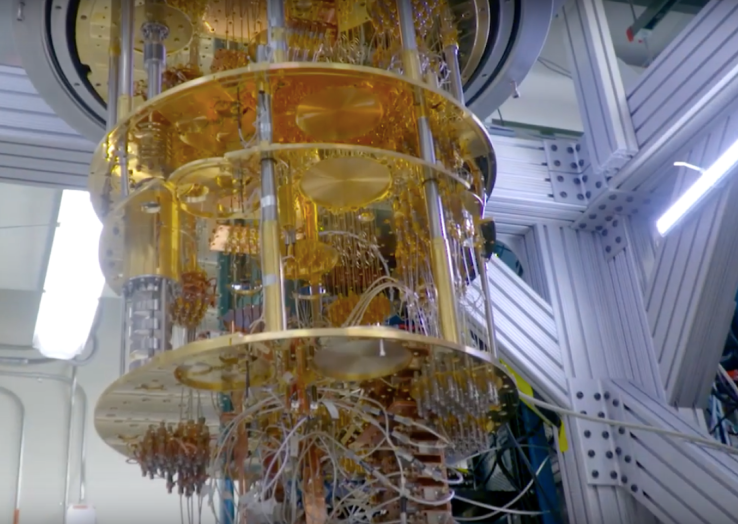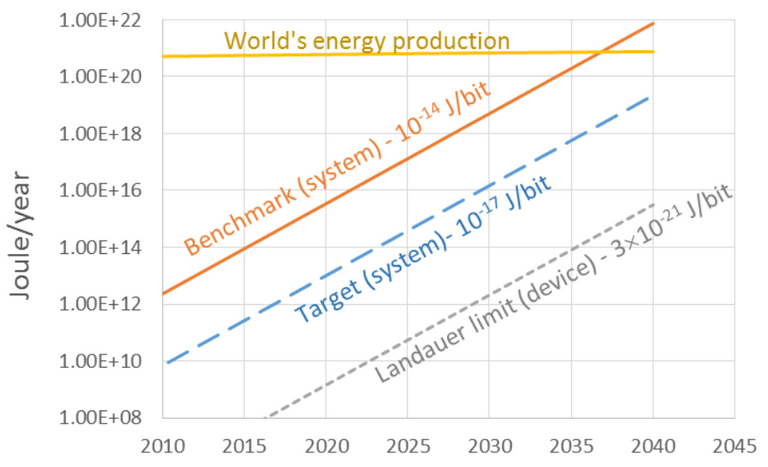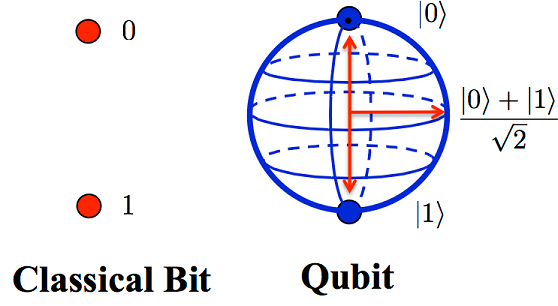Why Quantum Computing
Quantum computing is often mentioned as this holy grail, this spectre just behind the horizon. It is mentioned as a threat, a catalyst, and so much more. People speak about it with both awe and fear. As soon as you mention “quantum physics”, people tune you out so I’m going to attempt to explain what quantum computing is and isn’t and why quantum computing is seen this way.

Quantum vs Traditional Computing
There are three main differences between traditional and quantum computing. The first difference is scale. Imagine writing a large number on a piece of paper. If you know it’s going to be a large number, you write smaller and/or choose a larger piece of paper. This lets you fit more of the number on the paper. With traditional computing, we’ve essentially been choosing a larger piece of paper instead of writing smaller, we’ve been adding more memory, more processing power, more “oomph”, if you will. With Quantum computing, we’re writing smaller. By working at the scale of literal atoms, a lot more fits on the same piece of paper.
Electrical Efficiency
The second difference is power. I don’t mean processing power. I mean straight up electricity. With traditional computing, we’re looking at there being a potential issue by 2040. Since the 1960’s there have been calculations showing the maximum efficiency of traditional computing, lowest possible power per bit. These calculations have held true and been confirmed repeatedly. Various tech experts and associations have placed the time when our traditional computational electricity requirements will surpass the electricity we can produce as the year 2040. Quantum computing is more efficient and will alleviate the issues caused by this situation.

Superposition
The third main difference is in what quantum computing can do. Superposition. It sounds scary, but it really isn’t. A bit is literally a value of 0 or 1 in traditional computing. Imagine a simple switch, it is either on or off. Now imagine that switch is for a light. You flip the switch and the light doesn’t come on. We know the light bulb is burnt out (or the power is out) but what we don’t is whether the light switch is in the off or on position since there was no change. Essentially that switch is both off and on until we can determine it to be one or the other. That’s the superposition, it’s both 0 and 1 until is one eliminated. That’s pretty straightforward, but quantum computing is more like a dimmer switch, in that it could be 0, it could be 1, or it could be another value and until eliminated, they all exist as possibilities. This is called a qubit or "quantum bit". In traditional computing, the computer considers each of the two possibilities individually. “Is it 1?” Yes or no. In quantum computing, the computer considers all possibilities at once. This can be accomplished with traditional computing with each computer processing a single possibility, but it’s a lot slower and more inefficient in terms of power consumption.

Efficiency Creates Potential
In terms of efficiency, quantum computing has the potential to do everything better while using significantly less power. This creates endless possibilities in terms of innovation. While traditional computing has enabled amazing things, quantum computing marks another age of advances in every field imaginable, agricultural, medical, financial, scientific, theoretical, manufacturing. Quantum computing is what will power innovation over the next century.
Quantum Computing and Cryptocurrency
Cryptocurrency, like any currency, is valuable because people trust it. Crypto's trustworthiness is found in the cryptography, the encryption, protecting it and in the shared ledger (a blockchain is essentially just a shared ledger with entries by consensus) providing transparency. Quantum computing is seen as a threat to the encryption. Traditional computers would need literally millions of years to crack the public keys (address) of a bitcoin address to get the private keys. While it wouldn't be instant for a quantum computer, at first, it wouldn't take nearly as long. Without the encryption protecting crypto, there is no crypto.
The Future of Crypto
Some people see this as a doomsday event for cryptocurrency. Others see it as an opportunity to attempt to make quantum resistant cryptocurrency with more complex encryption, using different methods like lattice based encryption. That's an additional topic, but just think of it as the toughest encryption currently available, with no known shortcuts to solve. There's also likely going to be encryption created using quantum computers, expanding quantum cryptography from quantum resistant cryptography to truly quantum cryptography.
Summary
Quantum Computing is a hot topic with a lot of misconceptions, but it's an important thing to understand. I don't consider it to be a harbinger of the end of cryptocurrency, just a turning point in how things are going to encrypted. I will continue to explore this topic in additional posts, but felt it was important to create a baseline of the fundamentals. There are some great resources that I will provide also, in case you're interested in learning about quantum computers or actually using one.
This is a great video on the basics, if you're better at learning from video that text:
Interesting and insightful article Ash! Upvoted, followed you from cryptocurrency club for beginners. I'll start keeping an eye out for your articles here :)
-CryptoRock
Thanks @zeppelin9899 :)
np :)
-CryptoRock
I have a brother with a degree in quantum physics, and this is still the best explanation of quantum computing I've heard yet.
Great work!
Resteeming~
Thanks Olyup :) Sometimes people with highly technical skills lack the ones necessary to explain things. I follow the "explain it at the 7 year old level and work up from there" model. Makes things easier to handle!
Breaking it down Barney style!!
Another exellant article. Quantum computing will create a whole new set of proplems and challenges as does any new technology, but over all i think quantum computing will benefit crypto and the whole world. Like with most things, there is nothing enherently dagerous about quantum computing. It's who controls it and what they do with it. Imagine in the future, quantum cryptography.
For sure, I've got some additional posts scheduled that covers the topic more in depth. :) Thanks for your support Zadowlan!
Very good article, thank you. I have also written up on the topic, maybe you want to look. :-)
https://steemit.com/cryptocurrency/@mnemonic19/will-quantum-computing-threaten-bitcoin-and-other-cryptocurrencies
This technology is developing very fast but is still far away from being ready for the mass market. I think cryptocurrencies still have plenty of time to adjust.
I think there is time to adjust. I also think that there is security found in being proactive. There's a publicly accessible quantum computer available online and capable of handling batch jobs already, so while a QC PC is not immediately on the horizon, we're looking at industry shifts in the near future.
What's not clear to me is that even if the cryptography is broken, how is this breaking a currency based on crypto when we have the shared ledger?
Certainly, accessing someone's account should be easier.
If I can get your private keys from your public keys, then I can spend/send as if I'm you. You would then no longer trust that currency.
If someone breaks the encryption, people will dump the currency because they will no longer trust it as secure. Your value being secure is based on the encryption.
Got it, thanks for the explanation.
Interesting .